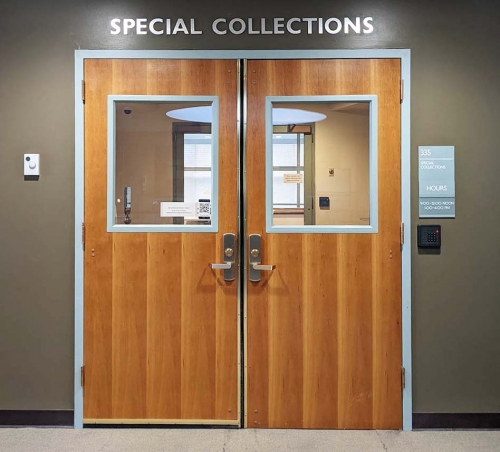The book collections housed in the Special Collections and Archives department reflect a wide range of subject matter, published dates, and formats. The Rare Book Collection, for example, contains illuminated manuscripts from the 13th c. as well as artists’ books from the 21st. A collection of rare books on astronomy and astrophysics on loan from the Dudley Observatory is also kept in this area. The primary purpose of these collections is to enhance and expand the College curriculum. Department staff are eager to work with classroom faculty to identify materials that would be useful for their classes. Faculty may bring classes to Special Collections to show students the volumes relevant to their course work.
Search our Rare Book Collections
